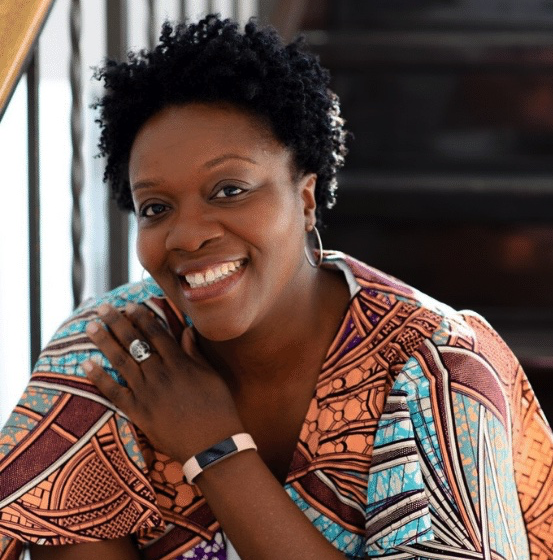Donna Hemans | Guest Writer for MFA Program

Hood’s creative writing MFA program welcomes Donna Hemans as guest writer for June 2024 residency.
Q&A
Program
- Creative Writing (MFA)
Department
- English & Communication Arts
Donna Hemans is the author of three novels, River Woman, Tea by the Sea and The House of Plain Truth. Her short fiction and essays have appeared in Slice, Electric Literature, Ms. Magazine, The Rumpus and Crab Orchard Review, among others. She received her undergraduate degree in English and media studies from Fordham University and an MFA from American University. She lives in Maryland and is also the owner of DC Writers Room, a co-working studio for writers based in Washington, D.C.
Hood College is thrilled to welcome Hemans as a guest writer during the inaugural summer residency for the new creative writing MFA program. In the conversation below, Hemans discusses her latest novel, how family history informs her work and what she hopes students will take away from Hood’s upcoming summer residency.
When did you first become interested in writing and what sparked your passion?
My interest in writing really ramped up during my undergrad years. I majored in English and media studies, wrote for the school newspaper and took a few creative writing courses. I also took an independent study course with a creative writing professor who suggested I read Zora Neale Hurston’s Their Eyes Were Watching God. That was perhaps my first time reading and discussing literature through a writer’s eye, which really changed the way I began to look at how writers construct stories and build characters. Although the book was set in Florida and I grew up in Jamaica, Hurston’s stories reminded me quite a bit of some of the communities I knew growing up. The dialect felt familiar too. I thought then that I wanted to write like Hurston did about my own Jamaican communities.
Tell us about your new novel, The House of Plain Truth. What was the inspiration behind the book and what do you hope readers will take away from it?
The House of Plain Truth is a story about family secrets, triggered when Pearline decides to return to Jamaica to help take care of her dying father. On his deathbed, he asks her to find her siblings who had been left behind in Cuba 60 years earlier. He also asks her to be his memory. Pearline has to figure out how the two requests are connected.
The novel is inspired in part by my own grandparents’ time in Cuba. My grandparents lived and worked in Cuba from around 1919 to 1931. While I knew some basic facts about that period in my grandparents’ life, I didn’t know any specific details about their time and experiences in Cuba. By the time I began looking at that time period from a writer’s eye, my grandparents were long gone. I wanted to understand their experiences and what better way to do so than to write about it.
You run the DC Writers Room. Can you describe your role there? How did this space come to be and how has it served local writers over the years?
I wish I could take credit for the idea of a co-working space for writers. I bought the business from another local writer who had been operating it for a few years. As the owner, I oversee the operations and plan events—panel discussions and readings—for writers. Generally, working in a professional, quiet space removes the many distractions that writers face when working at home or in coffee shops, and a professional space like the DC Writers Room allows members to meet other writers and build community.
We’re thrilled to be hosting you at Hood College next year! What are your plans and hopes for your time as a guest writer at the low-res MFA program at Hood?
My biggest hope is that students take inspiration from the diversity of voices and ideas and walk away confident that their stories are worth telling in their unique voice.
What do you see as the benefits of the low-residency model?
The low-residency model is a great option for students who are working full time or have other responsibilities that make a traditional program less than ideal, and a program like Hood College’s leverages the talents and expertise of several writers who are actively producing creative work—a bonus for students who want to see how they can put their own degrees to work.
How do you think students can leverage their creative talents into professional careers?
A creative writing degree opens many doors. For example, I’ve worked in corporate communications, writing speeches, brochures, website content, internal employee-focused communications—sometimes taking dry technical material and making it more accessible and entertaining for readers. My ability to do that is in part due to my work as a fiction writer.
Learn more about the low-residency creative writing program at Hood College here.
Are you ready to say Hello?
Choose a Pathway
Information will vary based on program level. Select a path to find the information you're looking for!
